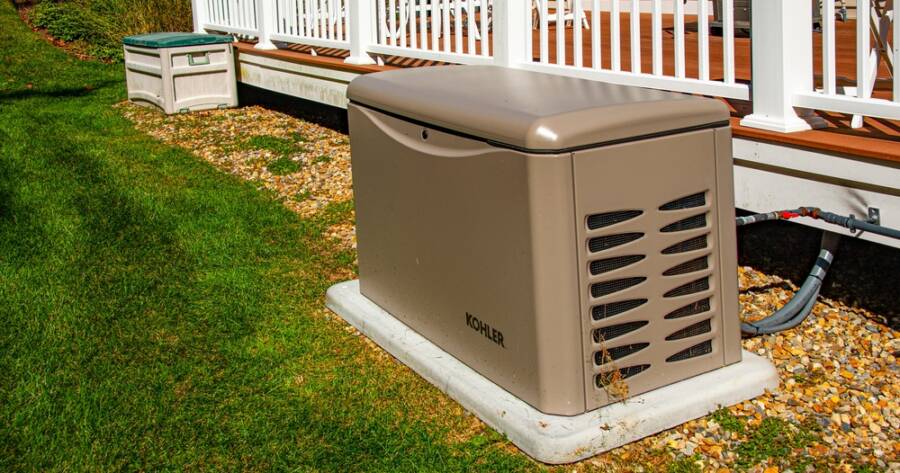Residential generators offer essential backup power during outages, ensuring your home stays lit and comfortable. With various options available, it’s key to understand which generator fits your needs. From small, portable units to whole-house systems, making the right choice involves understanding fuel types, wattage, and installation. Let’s explore the best generator types, key considerations, and tips for selecting a reliable power solution for your home.
Understanding Types of Residential Generators
When choosing a residential generator, the first step is understanding the different types available. Generators generally fall into three main categories: portable, standby, and inverter. Each has unique features suited to different needs:
Portable Generators
These smaller units are ideal for temporary use and can power essential devices during a short outage. They are easy to move and require no special installation, but they need manual start-up and produce limited power.
Standby Generators
Also known as whole-house generators, these are larger, permanent installations designed to power your entire home during an outage. Standby generators automatically switch on when power goes out, offering a seamless experience, but they require professional installation and regular maintenance.
Inverter Generators
Known for their quiet operation and stable energy output, inverter generators are great for sensitive electronics. While they usually produce less power than standby generators, they are more fuel-efficient and ideal for homes needing only essential devices powered.
Each type has its advantages, so it’s wise to consider your household’s specific needs before making a choice.
Fuel Options for Residential Generators
Another important factor is the type of fuel your generator will use. Common options include gasoline, propane, natural gas, and diesel. Here’s a quick look at each:
- Gasoline: Gasoline is widely available, making it convenient, especially for portable generators. However, it has a shorter shelf life and needs to be stored safely. This fuel is best for occasional, short-term use.
- Propane: Propane burns cleanly, and it’s easy to store. Many standby generators use propane because of its longevity and stable storage. It can be stored in large tanks, allowing for extended power during long outages.
- Natural gas: Many homeowners prefer natural gas for its constant availability, as it’s piped directly into the home. Natural gas generators are convenient and offer reliable power, but they may be affected if the gas supply is interrupted.
- Diesel: Diesel is highly efficient and can produce more power for longer periods. However, it’s often used in larger standby generators and has higher emissions than other fuels.
The fuel type you select will depend on availability in your area, budget, and specific power requirements.
Calculating Wattage Needs for Your Home
Choosing the right generator also involves calculating your household’s wattage needs. Wattage measures the amount of power required to keep essential devices and systems running, from lights and refrigerators to air conditioners and heating systems. Begin by listing all devices you’ll need to power during an outage, then calculate their wattage.
For example:
Refrigerator: ~600 watts
Lights: ~400 watts
Heating/AC unit: ~1000-5000 watts, depending on size
Television: ~200 watts
Sump pump: ~700 watts
Once you have the total wattage, consider adding a 10-15% buffer to ensure your generator can handle any additional devices. Many generator manufacturers provide sizing guides, which can help simplify this process. Opting for a generator with slightly higher wattage than you think you’ll need is generally safer, especially for whole-house generators.
Installation and Maintenance Considerations
After selecting the type, fuel, and wattage, it’s crucial to consider the installation and maintenance needs of your generator. Standby generators require professional installation, as they are connected to your home’s electrical and fuel systems. This setup can take time and should be planned well in advance.
Maintenance is another key factor. Generators need regular servicing to ensure optimal performance, including oil changes, filter replacements, and battery checks. Many manufacturers offer maintenance contracts to make this easier. For portable generators, always store them in a dry place and run them occasionally to keep the engine in good shape. Standby generators typically require an annual maintenance check by a professional, ensuring the generator is ready for any unexpected outage.
The Value of a Strong Warranty for Your Generator
When purchasing a residential generator, securing a good warranty is essential for long-term peace of mind. Generators are significant investments, and a comprehensive warranty protects against unexpected repair costs or malfunctions. A good warranty often covers parts, labor, and even service calls, reducing financial stress if issues arise.
Most offers on residential generators will emphasize the warranty. Since generators undergo wear from regular use, especially during prolonged outages, having a solid warranty ensures you can rely on support if something goes wrong, helping extend the lifespan of your generator and keeping your home protected.
Investing in a Reliable Power Solution
Investing in a residential generator is a smart way to protect your home and keep essential systems running smoothly during outages. Choosing the right generator depends on understanding your household’s power needs, selecting a suitable fuel type, and ensuring proper installation and maintenance.
By carefully evaluating these factors, you can select a generator that provides peace of mind and reliable power when you need it most. Whether you’re looking for a portable model or a whole-house standby system, a well-chosen generator will keep your home powered and secure year-round.
